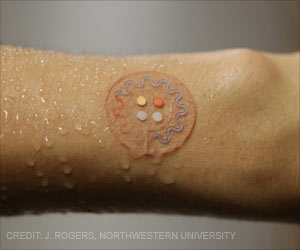Kineret, an anti-inflammatory drug licensed for treating rheumatoid arthritis can help reduce the Inflammation that occurs after the stroke, finds a new study.
Highlights
- Kineret, an anti-inflammatory drug could help reduce inflammation in strokes.
- Kineret works by blocking the actions of Interleukin-1 (IL-1), which is released as a response stroke.
- Kineret has been clinically licensed for treating rheumatoid arthritis.
Interleukin-1 protein is produced naturally and is the part of body's defense to combat a range of illnesses.
In a previous study, the scientists at the University of Manchester have shown that IL-1 tends to increase inflammation and brain injury after a stroke.
How Kineret works?
The anti-inflammatory drug, Kineret works by blocking the actions of IL-1 which is released into the body in response to stroke.
The study showed that when this drug was given an intravenous therapy, it reduced inflammation that occurred after the stroke and the subarachnoid hemorrhage.
"Excessive inflammation after a stroke is known to be harmful and predicts a worse outcome in patients."
"We have shown that Kineret injections, started within six hours of stroke onset significantly reduces levels of inflammation in patients." added professor Smith.
"This study builds on evidence that IL-1Ra (Kineret) helps to reduce inflammation and brain damage in a wide range of stroke patients soon after a stroke. The drug can be given quickly, via injection or via a drip. This means that it can be used in different settings, for example, it could potentially be given in ambulances on the way to the hospital. The brain loses around 2 million brain cells every minute during a stroke, so this could provide a major step forward in the fast and effective treatment of stroke", said Hilary Reynolds, Executive Director of Strategy & Research at the Stroke Association.
More research needs to be done to understand whether Kineret could be an effective treatment for ischemic stroke alongside current treatments such as clot-busting drugs (thrombolysis).
This research team has also shown that Kineret can reduce inflammation and is safe in patients with bleeding around the brain (subarachnoid hemorrhage).
One more trail with 80 patients with intracerebral hemorrhage is going to be conducted sometime soon this year. This study will test if markers of inflammation are getting reduced by Kineret or not and if the test is safe in intracerebral hemorrhage.
Reference
- Craig J. Smith, Sharon Hulme, Andy Vail, Calvin Heal, Adrian R. Parry-Jones, Sylvia Scarth, Karen Hopkins, Margaret Hoadley, Stuart M. Allan, Nancy J. Rothwell, Stephen J. Hopkins, Pippa J. Tyrrell.SCIL-STROKE (Subcutaneous Interleukin-1 Receptor Antagonist in Ischemic Stroke), Stroke (2018). https://doi.org/10.1161/STROKEAHA.118.020750
Source-Medindia















